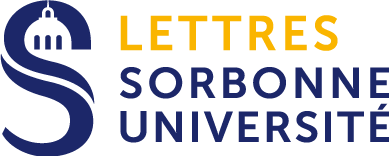Nicolas CHEPLAGIN, The Role of Digital Tools and Methods for Academic Research on the Clean Energy Transition, In: The Palgrave Handbook of Cybersecurity, Technologies and Energy Transitions, 2025, 1–46
Nicolas Cheplagin a récemment publié un chapitre dans un ouvrage collectif The Role of Digital Tools and Methods for Academic Research on the Clean Energy Transition édité par Arnault Barichella and Jurei Yada chez Palgrave Macmillan.
Référence complète : Cheplagin, N. (2025). ‘The Role of Digital Tools and Methods for Academic Research on the Clean Energy Transition’. In: Barichella, A., Yada, J. (eds) The Palgrave Handbook of Cybersecurity, Technologies and Energy Transitions. Palgrave Studies in Energy Transitions. Palgrave Macmillan, Cham. https://doi.org/10.1007/978-3-031-04196-9_33-1
Le chapitre porte sur les outils numériques utilisés dans les études sur la transition énergétique, notamment dans le cadre de rapports d’évaluation. Outre un aperçu de divers outils, le texte examine leurs spécificités en ce qui concerne la transparence et la reproductibilité des recherches. L’abstract en anglais :
This chapter provides an overview of digital tools and methods used in energy transition studies. Drawing primarily on the 6th IPCC assessment report, this chapter examines the interplay between its first and third Working Groups in analyzing future sustainable energy systems. Three types of tools are considered: first, energy system models that optimize the deployment of an optimal energy mix; second, climate models that simulate future environmental conditions; third, Integrated Assessment Models that provide both a comprehensive assessment of the energy economy and its climate impacts. The scenario-based analysis is discussed as the principal method of investigation, focusing in particular on the Shared Socioeconomic Pathways framework. The analysis of scenario development, quantification, and assessment demonstrates how assumptions about socioeconomic development are translated into warming figures. Additionally, the specificities of knowledge production with digital tools are highlighted, including the need to consider the social aspects of research, such as configuration, preparation, running, and achieving model appropriateness. Moreover, this text elucidates several obstacles to the transparency of energy transition studies despite the availability of information about tools and methods, thereby stressing the importance of considering transparency alongside reproducibility.
